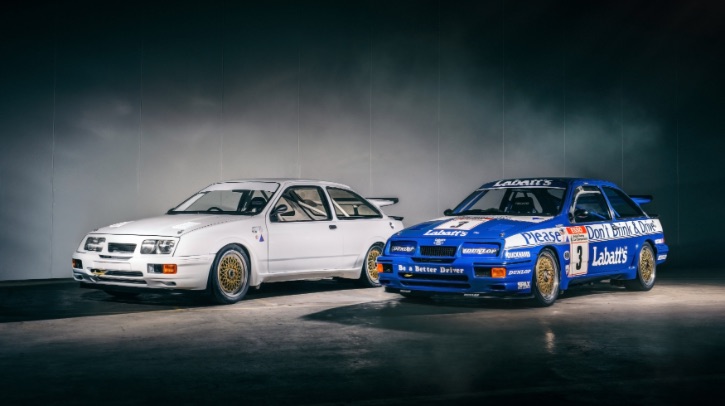The first Ford Sierra RS500 Group A race car, signed off by Andy Rouse Engineering, has been delivered by CNC Motorsport.
Made in partnership with the four-time saloon/touring car champion, it is one of three RS500s that the specialist is building for use on track. Alan Strachan, who worked for Andy Rouse Engineering from 1989 to 1996, and was a mechanic on the Team Labatts Sierra RS500 in the BTCC, and his son, Andrew, assembled the first car over the past two years. They were also actively involved in other projects including the Group A BMW 635CSI build, and the restoration of a Merkur XR4TI and a period Sierra RS500.
The second car is in its build stage and will use a motorsport specification unused bodyshell that was acquired at the start of the project. A third donor shell has already been sourced for the final car.
CNC Motorsport was responsible for all the fabrication work to the bodyshell along with the production of all the machined parts, such as uprights, rear arms, hubs, brake calipers, wheel centers and roll cage in-house, to the exacting specification of the period Andy Rouse Engineering cars. The car was built with inputs from Andy, and the team had access to period Labatts Sierras to ensure the build was faithful to the original cars.
The car also includes a Getrag 5-speed gearbox, period-style gauges, and a fuel tank enclosure and roll cage that match the specific Rouse design. CNC Motorsport remains the only producer of period ARE cages certified by the governing body, Motorsport UK. The first car features a 575bhp Cosworth YB engine built by Harvey Gibbs and a later 10-in viscous differential.
“This project has enabled us to build a reliable, period-correct car that will be competitive in historic motorsport for a fraction of the cost of an original. These are to be enjoyed, raced hard and fair and without the concerns of taking a valuable, period car on track. The fans love to see these flame-spitting RS500s on the limit and they open the door to take part in a huge array of events across Europe,” said Alan Strachan.



